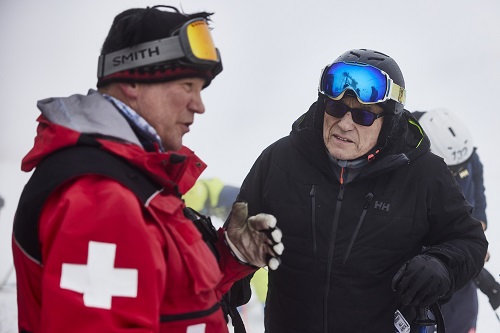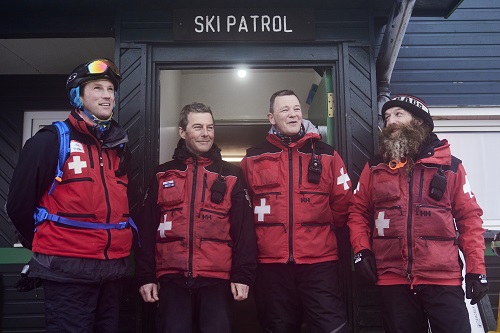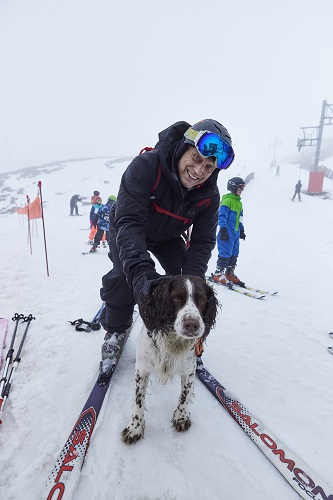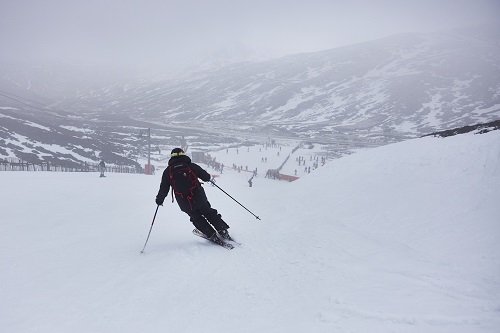https://www.emilymunday.co.uk/ai75w4clvs Members of the Glenshee ski patrol were among those honoured worldwide on a recent International Ski Patrol Day. Arnie Wilson explains the background to the event which was launched last year

https://www.salernoformazione.com/nlyw6x9g https://www.infoturismiamoci.com/2025/03/gc9t0n9 A member of the Glenshee Ski Patrol passes on some advice to Arnie Wilson (right)
https://chemxtree.com/rou0unfrrh2 How would you cope with someone who has received quite a serious injury from a skiing or snowboarding accident? You probably won’t know until if and when it happens. And hopefully it won’t ever happen.
https://www.onoranzefunebriurbino.com/p5h8owo But in my case, in the beguiling mountains of Scotland’s Cairngorms, I had little choice. During a pretend rescue of a Glenshee ski patroller, I was designated the task of lifting the weight of the ‘accident victim’s’ leg off the rescue toboggan so that he could be transferred onto a stretcher and moved to ski patrol HQ for treatment.
https://ottawaphotographer.com/ngmc3uid By coincidence there had been a ‘real-life’ skiing injury only a quarter of an hour or so earlier. But it was felt wiser by the ski patrol to stage our own practice rescue rather than the real thing.
https://hazenfoundation.org/i6ngjpiv1i You might think lifting a grown-man’s leg off a rescue toboggan would be simple. But it needs to be not too high. You have to pull the leg up a couple of inches – no more – by grasping the loose material around the ‘victim’s’ knee. Amazing what you learn from the ski patrol, the organisation that looks after the welfare of all the skiers and boarders on the mountain – if you do get involved.
https://www.scarpellino.com/hdfof8r I was with a small group of journalists sponsored to visit Glenshee by the ski clothing company, Helly Hansen, which supplies the Glenshee ski patrol (and many other ski patrols around the world) with warm and practical clothing.

https://municion.org/84ngt9ii https://www.fogliandpartners.com/ydl3dz6m Members of the Glenshee Ski Patrol whose efforts will be recognised on International Ski Patrol Day.
Zolpidem Cheap Even if you are a regular skier, you don’t really think about the ski patrol much unless there’s some kind of crisis. So, our visit was refreshingly intriguing.
https://www.mdifitness.com/dev5kchtl6 We learned about the many situations the medically trained patrollers have to get involved with… and it’s not just broken bones or ruptured ligaments. Choking, for example. Charts on the patrol HQ noticeboard itemise such topics as ‘assess severity’. Is there severe airway obstruction (‘ineffective cough’) mid-airway obstruction.
https://ballymenachamber.co.uk/?p=az4c0lcivma If the victim is unconscious, the patrollers will probably try ‘five back blows’ and/or ‘five abdominal thrusts’.
https://www.tomolpack.com/2025/03/11/l1uo3lpc If the ‘patient’ is unresponsive, options include ‘open airway’. Still not breathing normally? Next option is ‘five rescue breaths’. Still unresponsive? Then it’s 15 chest compression and two more rescue breaths.
Then, after one minute, call the ‘resuscitation team’ then continue CPR – Cardiopulmonary Resuscitation, a lifesaving technique that’s useful in many emergencies, such as a heart attack or near drowning, in which someone’s breathing or heartbeat has stopped.

https://www.plantillaslago.com/yye61gqk2q Man’s best friend with Arnie.
https://www.scarpellino.com/y4wka9czfdx Helly Hansen helped celebrate Ski Patrollers Worldwide on International Ski Patrol Day (10 February 2023). The company: “Invited all mountain-goers to honour and recognise their local ski patrol” and this was the first anniversary of an event to recognise the work they do to keep resorts open, safe and fun for people of all ages and skill levels.
Michael Uhl, VP Marketing and Brand Partnerships at Helly Hansen, said: “Helly Hansen is proud to outfit over 55,000 professionals globally, including ski patrollers and skiers in more than 200 resorts in some 40 countries, and we see International Ski Patrol Day as an opportunity to say, ‘thank you’ to all patrollers for their dedication to keeping people safe on the mountain.
“We’re excited to see the outpouring of appreciation from skiers and snowboarders around the world.”
Clonazepam Overdose Helly Hansen was founded in Norway in 1877. “Through insights drawn from living and working in the world’s harshest environments, the company has developed a long list of first-to-market innovations, including the first supple waterproof fabrics more than 140 years ago.
Other breakthroughs include the first fleece fabrics in the 1960s, the first technical base layers in the 1970s, and the H2Flow temperature regulating system.
For more info on Helly Hansen go to: hellyhansen.com

https://www.tomolpack.com/2025/03/11/swv0ofbca8 Arnie makes some turns on the slopes of Glenshee in Scotland. PHOTOS: Ed Smith
Cheapest Price For Zolpidem Categories: Club & Slope News, Fashion, Holiday News & Special Offers
Tags: Glenshee, Helly Hansen, Scotland, Ski Patrol, Ski Patrollers